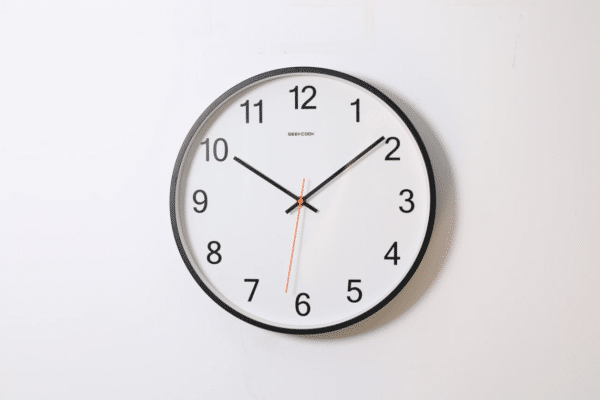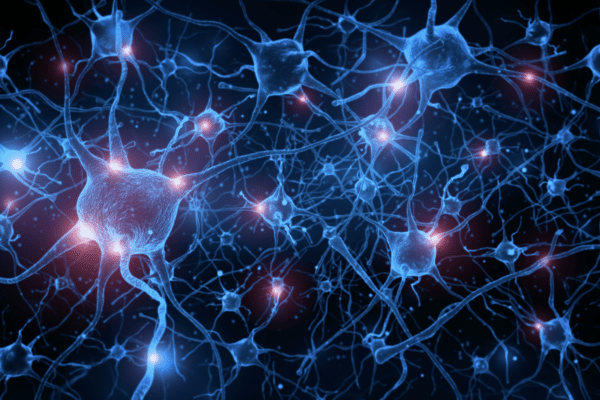Is Alcohol a Depressant? The Most Important Things You Need To Know

People who consume alcohol often turn to it when they are feeling down or to relieve nerves. As a result of drinking alcohol, they seem to feel more euphoric or relaxed.
Because of these positive associations with alcohol, a lot of people are shocked and confused to hear that it’s classified as a depressant.
So, is alcohol a depressant? If so, why is it defined this way?
Here, we’ll cover everything you need to know regarding alcohol as a depressant and the dangers that come with it.
What is a Depressant?
Before we answer the question, “is alcohol a depressant?” Let’s first define what a depressant is. A common misunderstanding is that a depressant, which is also referred to as a “downer,” is something that makes you emotionally depressed.
According to Merriam-Webster, it is actually a substance that reduces bodily function. This kind of drug inhibits the central nervous system (CNS), which slows down the activity of both your nervous system and brain.
Individuals who consume downers will experience altered senses, emotions, movements, perceptions, and judgments. These changes are caused by messages that are blocked from a person’s nerve receptors to their brain.
People who regularly use downers are also more susceptible to accidental injuries, health risks, and death.
Contrary to popular belief, downers do not make users sad. These drugs often make users feel good and at ease at first.
However, when people drink alcohol and other downers, these drugs are often not consumed in moderation. The long-term abuse of these substances can cause users to not feel good, but rather emotionally depressed and susceptible to symptoms of chronic depression.
Is Alcohol a Depressant?
The answer is yes. Alcohol diminishes the central nervous system, so it is classified as a downer.
Because alcohol slows down brain activity, users will find it difficult to make rational decisions and maintain sound judgment. They will also experience lessened inhibitions, which can cause individuals to put themselves in unsafe situations.
The Side Effects of Alcohol and Depressants
While alcohol is one of the most common types of downers, it’s not the only one. Some other kinds of downers are medications that doctors prescribe to minimize symptoms of panic, anxiety, and sleep disorders. Some of these downers include:
● Librium
● Klonopin
● Ativan
● Halcion
● Valium
● Xanax
While some downers are distributed to help patients, they should only be used in moderation and under a doctor’s orders. On the other hand, alcohol is a downer that’s enjoyed specifically for recreation.
Any type of downer can have severe effects on the body. Learn more about them below:
What Depressants Do to Your Body
In general, downers will inflict the following effects on your body:
● Sedation
● Drowsiness
● Forgetfulness (amnesia)
● Lethargy
● Dizziness
● Disinhibited emotions
● Loss of coordination
● Slurred speech
● High blood pressure
The Specific Effects of Alcohol
The specific effects of alcohol on heavy drinkers include:
A Weakened Immune System
In large amounts, alcohol can reduce the effectiveness of your natural immune system. This will make it difficult for your body to fight off viruses and germs. When compared with the general population, heavy drinkers are much more likely to develop conditions like tuberculosis and pneumonia.
Pancreatitis
Heavy drinking can lead to the buildup of digestive enzymes and inflammation of the pancreas, which is known as pancreatitis.
If not treated in time, pancreatitis can develop into a long-term condition. This can lead to further complications like nutrient malabsorption and the development of diabetes
Digestive Issues
Drinking alcohol can severely disrupt your digestive system. You will not notice the effects until after the damage has been done. Some common digestive issues heavy drinkers often experience include:
● Gassiness
● Bloating
● Painful stools or diarrhea
● Hemorrhoids
● Ulcers
People who drink heavily over a long period of time will not be able to digest food properly. As a result, they won’t be able to get the vitamins and nutrients they need to stay healthy.
Issues with Sexual and Reproductive Health
A lot of people turn to drinking to lower their inhibitions and improve their sex lives. However, you must know that heavy drinking can negatively impact your sexual and reproductive health.
People who partake in heavy drinking can experience a decreased production of sex hormones and lower libidos. Men who drink a lot are prone to experiencing erectile dysfunction. Women may stop menstruating and can experience infertility.
Pregnant women who drink have a higher risk of enduring a premature delivery, stillbirth, or miscarriage. Drinking can also put an unborn child at risk of developing learning disabilities, physical abnormalities, and emotional problems.
Circulatory Issues
Heavy drinking can have severe effects on your heart and lungs. For example, you may experience high blood pressure, an irregular heartbeat, stroke, heart disease, or heart failure.
Some circulatory effects, like high blood pressure, can be temporary. However, long-term heavy drinking can cause them to become more permanent issues.
The Danger of Alcohol and Depressants
The danger of these substances doesn’t end with their individual physical side effects. There are further complications you should be aware of:
Mixing Substances
As discussed above, using alcohol or downers can be very dangerous on their own. However, drug use can become further complicated when you use multiple at one time.
Mixing different kinds of downers will intensify the effects that we covered earlier in this article. You will also be at a higher risk of developing a dependence on certain downers and even overdosing.
There are also different dangers associated with mixing downers and stimulants. Stimulants can be defined as downers’ opposite; they increase activity within the body and central nervous system.
If you use alcohol (which is a downer) and a stimulant together, you can experience severe effects including:
● Negation of medicinal benefits: Some stimulants are prescribed by doctors including Adderall and Ritalin. However, if you consume a stimulant drug with alcohol, the medicinal benefits of the stimulant will be negated.
● Increased chance of overdosing: When you use alcohol, you are more likely to consume more to make up for the dampened effects. It can negate the effects of a stimulant drug and lead to an overdose.
● Diminished cognitive capacities: Together, stimulants and alcohol reduce cognitive capacities far more than either drug does alone.
● Difficult withdrawal periods: If you decide to stop using both substances at the same time, the withdrawal period will be much more severe. Individuals who are not emotionally stable will experience an even more difficult time.
● Rapid development of a substance abuse disorder: The combination of alcohol and stimulant use can lead to the rapid development of a substance abuse disorder.
Increased Risk of Cancer
According to the National Institute on Alcohol Abuse and Alcoholism, consuming alcohol has been known to put individuals at risk for developing certain types of cancers. Some of these cancers include:
● Head and neck cancer: Consuming alcohol is a major risk factor for certain head and neck cancers. You will be more likely to develop cancers of the voice box, throat, and oral cavity (excluding the lips). People who consume around 4 drinks a day are three times as likely to develop these cancers as nondrinkers are. Your risk will increase substantially if you consume tobacco in addition to alcohol.
● Liver cancer: Alcohol consumption is one of the primary causes of hepatocellular carcinoma, also known as liver cancer.
● Esophageal cancer: If you drink heavily, you are at greater risk for a type of esophageal cancer called esophageal squamous cell carcinoma. You will be at further risk if you have inherited a certain enzyme deficiency that makes it difficult for your body to metabolize alcohol.
● Colorectal cancer: Drinking heavily will put you at increased risk for cancers of the colon and rectum. Consuming around 4 drinks per day will make the odds of developing colorectal cancer 1.5 times more likely than non-drinkers. You will also have a small chance (around 7%) of developing colorectal cancer if you only have one drink per day.
● Breast cancer: Dozens of studies have found that increased alcohol intake puts women at a higher risk of developing breast cancer. Risk levels were heightened for all levels of intake. One study found that even women who consume less than one drink per day are 7% more likely to develop breast cancer than those who didn’t drink at all. A more recent study in the United Kingdom reported an even higher estimate at 12%.
Non-Physical Effects of Alcohol Use
While there are plenty of physical effects of downer use, there are also some non-physical effects. Individuals who abuse downers often experience problems with their:
● Finances: People who are dependent on alcohol will often spend every available dollar to fuel their addiction. As a result, they often struggle to pay basic living expenses and provide for their families.
● Relationships: If you are abusing alcohol or other downers, you may find it difficult to maintain relationships in your life. You may spend most of your time away from your family and friends and trying to achieve feelings of euphoria and relaxation.
● Employment: Showing up intoxicated to work can affect your performance and interactions with co-workers and managers. The abuse of downers can make it difficult to hold a job or find employment if you are currently looking for work.
Those who use alcohol often exhibit dangerous behaviors. A study done by the Federation of American Societies for Experimental Biology found that alcohol abuse heightens users’ participation in risky behavior. Participation in risky behavior is more apparent when alcohol use begins in adolescence.
Some of the risky behavior that those addicted to this drug engage in includes:
● Engaging in physical alterations or other forms of violence
● Having unprotected sex
● Driving under the influence
Conclusion
Is alcohol a depressant? Yes, and alcohol addiction is not something to take lightly. It will not only affect your physical and mental health but also your relationships. Failing to seek professional help can result in detrimental long-term effects.
If you, a friend, or family member is struggling with alcohol addiction, you are not alone. Alcohol addiction is tricky to overcome. Its effects may seem beneficial on the surface level, but you must understand the dangers associated with its abuse. Contact the experts at the Master Center for Addiction Medicine to get help and start your path to recovery. We offer comprehensive recovery support and a state-of-the-art treatment center. Our friendly and compassionate staff will give you the mental health aid, detox resources, and comfort you need to overcome your long-term addiction to alcohol or other downers.
Resources:
https://www.niaaa.nih.gov/alcohols-effects-health/alcohols-effects-body


